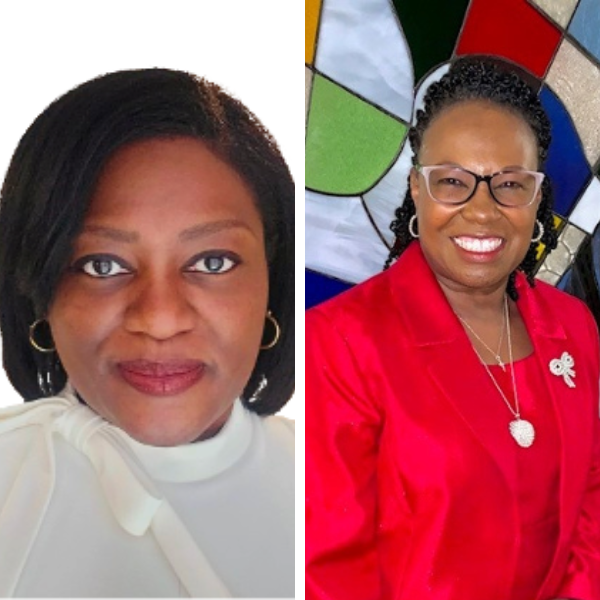Solidarity in Action

Greetings ACPE. Today, I am writing to call attention to the recent violence and rhetoric against Black women in our country. While political figures are referenced and essential to my personal observation of bias within our organization, the central point of this article is to lift Black women students, educators, therapists, and staff within our association who may be feeling extremely vulnerable at this time and to call forward our shared commitment to care for all.
Last month, I received emails from members inquiring whether ACPE would issue a statement about the political (gun) violence at the former President's July 13th rally. While our thoughts are extended to all of the families impacted, we chose not to focus on one instance, considering the increase of gun violence everywhere. July, in particular, was a difficult month with thousands of shootings across the nation, resulting in numerous injuries and hundreds of heartbreaking fatalities.
Elevated among them was the senseless murder of Ms. Sonya Massey by Officer Sean Grayson, which took place one week BEFORE the above-mentioned incident. Recorded for all to see, I will not attempt to describe the alarming situation here.
What remains most disheartening for me, as Executive Director, has been the deafening silence in my inboxes - email, voicemail, or otherwise - regarding this tragic killing. Joined with the exasperated indignation evoked across the nation in response to Vice President Kamala Harris receiving chief endorsements to seek the highest office in the land, I kept alert for interest in the need to care for our colleagues living out the daily outcomes and repercussions of both events. I assumed this would come from various directions within ACPE for obvious reasons. Nearly 30 days later, I am clearly and sadly mistaken.
That said, my respectful response is as follows:
ACPE, WE'VE GOT WORK TO DO!
We stand and serve in positions that require and should demonstrate the respect and care of all, yet, we still struggle and show bias despite our anti-bias proclamations. Our numbness to the suffering of one while demonstrating, and demanding even, hypersensitivity to the plight of another is bias. Rapid attentiveness to assumed or perceived pain while hesitating and/or abstaining to care for agony resulting from that which is brazen is bias.
Similar to the heartened efforts being placed into ensuring the necessary care for our students and colleagues impacted by antisemitic and anti-Muslim matters in our world, I lift for care among us, Black women, who are once again made to guard our hope and peace while grieving through a valley filled with unwarranted fury, rebuke and reluctant sentiments of empathy and compassion.
I am grateful to our Chief of Diversity and Inclusion, Jasmine Okafor, for lifting the ACPE tools currently available to help us care for one another in times like these. Please see links below to access the resources. We invite those who are currently cultivating spaces within ACPE where Black women can find support and solace throughout the day to share them as well. The Womanist Approach to Care and Curriculum CoP is one we are grateful to have among us.
The Womanist Approach to Care and Curriculum stands in solidarity with our ACPE Executive Director, Lynnett Glass, and the call to stand collectively against the deeply troubling tragedy involving Sonya Massey. We are profoundly disturbed and share in the call for the urgent need for systemic change within law enforcement. This change is crucial to finally obliterating the continual race-infused injustices that plague marginalized communities because of systemic racism and inadequate policing practices. We extend our heartfelt condolences to Ms. Massey’s family and friends during this challenging time and remain committed to working alongside our Executive Director collectively to ensure that such tragedies are not repeated and that every individual, especially our black and brown sisters, and brothers, are treated with dignity and fairness.
- Chaplain (Rev.) Lauri A. Swann, D. Min., ACPE-CE, BCC
Throughout the remainder of 2024, ACPE will seek to provide additional support to colleagues impacted by the brooding social climate.
ACPE family, if we are called to this ministry of care, we must embrace every aspect of it in order to answer fully. Bold, justice-seeking proclamation is also our portion. It is the other half of our assignment here on earth. As you encounter the families and friends of victims of gun violence in emergency rooms, ICUs, rehabilitation centers, funeral homes, congregations, or other places of spiritual gathering, please continue to be brave and intentional in your care for all. And as you work alongside those of us navigating the battlegrounds of bias, racism, and hatred, please take the time to “see” us, check-in, and lend your heartfelt support to us as well.
Prayerfully,
For psychological safety and thought partnership, I extend gratitude and appreciation for: Rev. Alvernia Disnew, Rev. Leslie Nambo, Rev. Lauri A. Swann, and Jasmine Okafor, MDiv
Rev. Dr. Cecelia Walker is a Certified Educator at The Ingalls Center of Pastoral Ministries in the Baptist Health System. She is currently serving as Chair of the ACPE Board of Directors and can be reached at cecelia.walker@bhsala.com.
Lynnett Glass is ACPE's Executive Director. She can be reached at Lynnett.Glass@acpe.edu
Resources:
ACPE Anti-Bias Work Group Resources
ACPE Trauma Informed Care Resources
Trauma and Moral Injury: A Guiding Framework for Chaplains - Chaplaincy Innovation Lab
ACPE Celebrates Black History Month: A Conversation with ACPE REM Leaders & Elders
